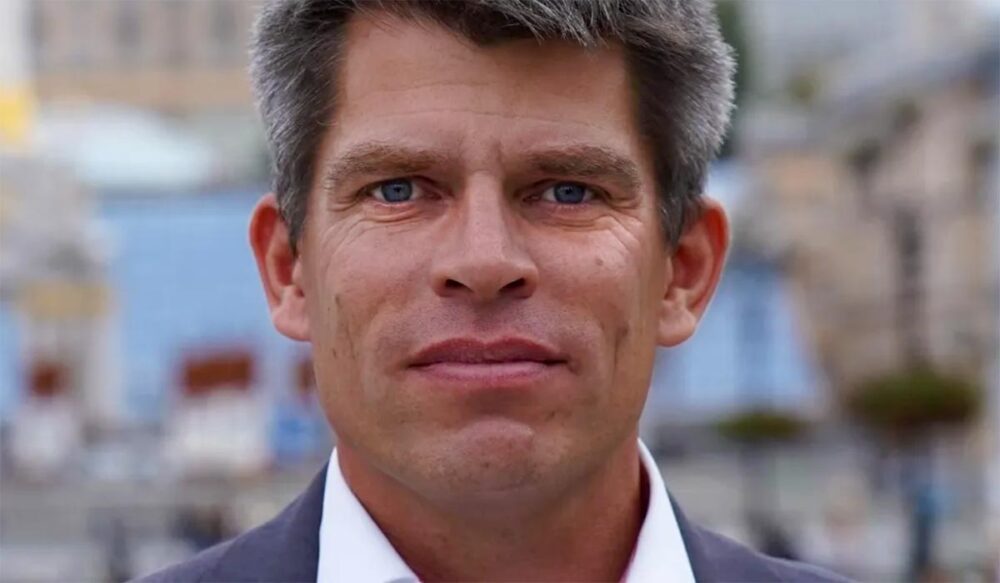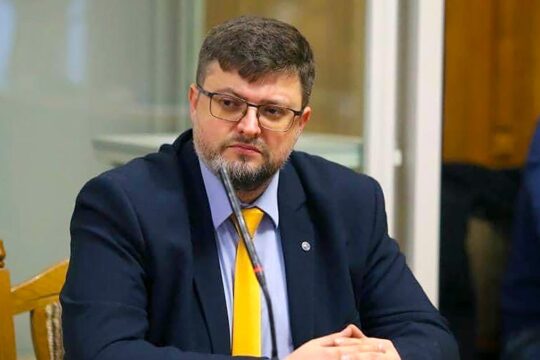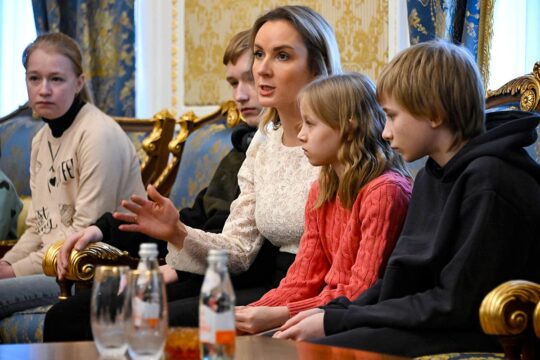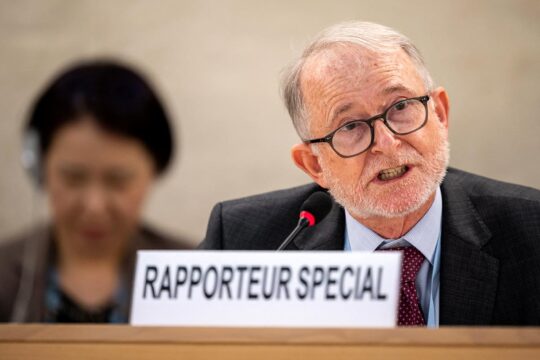ZLOCHYN.DP: What makes it difficult, from your point of view, to investigate war crimes in Donetsk and Luhansk regions?
KLAUS HOFFMANN: Unfortunately, a significant part of these regions is still under occupation. This creates considerable difficulties for investigations because, due to the lack of access, our Ukrainian colleagues are often unable to inspect the crime scene and document evidence. The only option left is to work with those witnesses and victims of crimes who were able to leave occupied territory. I should also point out that in the current situation, our Ukrainian colleagues are facing a situation where they must work in close proximity to the war zone, with daily sirens and constant attacks. This in itself greatly complicates their work. Yet another challenge is the overwhelming number of cases. Currently, we need to find criteria by which to prioritize cases. This, of course, does not mean that the investigation of all other cases should be dismissed.
What is the current significance of trials held in absentia within the Ukrainian judicial system?
We explain to our Ukrainian colleagues and friends that international justice allows proceedings in absentia [without the presence of the accused]. Naturally, we understand that society and, above all, the victims of war crimes, are eager for justice to be served as quickly as possible. Certainly, if the evidence is gathered, the trial can take place even in the absence of the accused. However, it is important to understand that international standards stipulate strong protection of the rights of the accused. We see some difficulties in this regard as well. In particular, the proper informing of the accused, supposedly a Russian soldier, is in fact often delayed by the court. It is obvious that communication between the embassies of the countries at war does not work. Another problem is ensuring the right to defence. Although the accused has a lawyer, they have no contact with each other, so it is very difficult for a defence lawyer to be involved in such proceedings. With this in mind, we mentioned to our colleagues that other countries, such as Croatia, have conducted a significant number of trials in absentia. But then a number of cases were reviewed by the European Court of Human Rights. It should be understood in advance that some court decisions will be subject to appeal in Strasbourg in the future.
Could you share your thoughts on the way collaborators and traitors are tried in Ukraine?
This is a very difficult question. A considerable part of such criminal cases, of course, must be investigated and, therefore, will be investigated by prosecutors. For example, the case of the Head of the Kharkiv Security Service and the cases of other people who assisted in the Russian invasion, allowed it to occur and also helped to establish the occupation authorities or actively interacted with Russia. However, my recommendation to my colleagues is to follow the relevant instructions while determining whether or not there was a fact of collaboration in each particular case.
It is no secret that most of the "notorious" collaborators have fled the de-occupied territories.
Yes, it's true. When the occupied territories were liberated, the "main" collaborators fled to Russia. But as for the people who are now being investigated and tried as suspects or have already been indicted for collaboration, first of all, we need to find out why they stayed in the occupied territories. To survive, because of their families or something else? It is necessary to be very careful with such cases. Once a prosecutor in the Kyiv region suggested during a discussion that there should be a general presumption of innocence for people who remained after the liberation of the temporarily occupied territories because we cannot begin to imagine that all these people were voluntarily involved in collaboration activities. It is a challenging task to separate those who were trying to earn some money and feed their families from the real collaborators. And to conclude, I would like to add that the way the Ukrainian justice system will deal with collaborators is not only a legal but also a political problem. In this regard, it is reasonable to rely on the experience of transitional justice in European countries, particularly in postwar Germany.
What would you say is the main difference between the war crimes in the former Yugoslavia you dealt with as a prosecutor and the crimes of the current war?
I will start with a great number of similarities. I worked on a case against Serbian war criminals and saw many common features in the actions of the Russian and Serbian armies. It includes terrorizing the civilian population regularly, imprisoning civilians and executing them. Also, there are numerous sexual crimes. Another common feature is the use of prisoners in hostilities. What happened in the Balkans is happening again. This time it is happening in Russia.
The biggest distinction is the scale of the war and the completely different number of war crimes and their victims. There are differences in the political aspect as well. For instance, it is important to remember that this war was started and is being led by Russia, which is one of the five permanent members of the UN Security Council. In other words, it is one of the countries that is supposed to ensure peace in the world.
Is it your opinion that sooner or later those responsible for war crimes committed in Ukraine will be punished? And what is needed for this to happen?
This is a very important question both for victims of war crimes and for society as a whole. I believe that the arrest warrant for Putin issued by the International Criminal Court in The Hague is a very important step in this direction. In the context of the Yugoslavia tribunal, no one really expected that the top officials there – Milosevic, Mladic, Karadzic – would be tried. Obviously, the political situation in Serbia and Russia is different. But we have to wait. Over time, there will be more proceedings and more arrests. War criminals will be brought back from Russia or arrested while in other countries. As for political leaders like Putin and Shoigu [Russia’s Minister of Defense], we'll see. It may take a few years, but I am sure that one day these people will be detained.
This interview is part of our coverage of war crimes justice produced in partnership with Ukrainian journalists. A first version of this article was published on the "Zlochyn.dp.ua" website.







